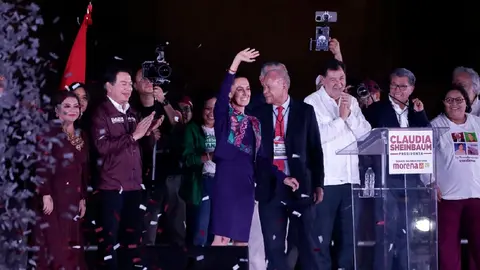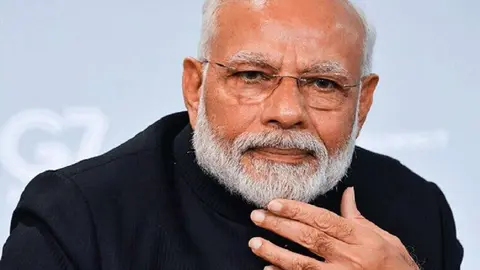The good fortune of being able to vote

But there will be time to deal with all that, now I would like to concentrate on the elections that have just taken place in three major countries: Mexico, India and the Republic of South Africa.
In Mexico, 98 million people were called to vote and Claudia Sheinbaum, 61, climate scientist and former mayor of Mexico for the Morena party, which she founded together with President López Obrador (AMLO) and which has put the institutional power of the state at her service, won by a clear majority (58%) over Xóchitl Gálvez (29%), the candidate of an opposition coalition that includes the historic PRI. Although Sheinbaum promises her own style of government, she has undoubtedly been helped by AMLO, a populist not unlike Bolsonaro or Orban, although he is left-wing, blames the Spanish conquistadors for the social injustices of two hundred years later, and can present successful social policies (he has doubled the minimum wage, improved pensions or increased paid holidays) thanks to the good performance of the economy due to the difficulties in relations between the US and China that have led to the fall of the US-China relationship. This has led the former to invest massively in Mexico in search of security and cheap wages (friendshoaring). On the downside is the high budget deficit and the very serious security problems that have not improved despite AMLO's involvement of the army in the fight against drug trafficking.
Sheinbaum, a descendant of Jewish immigrant grandparents, thus has the enormous merit of being the first woman to become president of a country where women have only been voting since 1953 and where machismo is one of its hallmarks. We will now see if she succeeds in reforming the Constitution to eliminate controls of the Executive by the Supreme Court of Justice and the National Electoral Institute. It seems that Morena has no lack of desire to do so.
In India, after a month of voting for 900 million voters, Narendra Modi, another populist in this case with religious-identity roots, has won, albeit with less difference than expected, and is leading the country into a dangerous authoritarian and nationalist drift that risks ending territorial decentralisation and the fragile coexistence between the majority Hindus and Muslims, Christians, Buddhists, Jains and Sikhs, although the need to form a coalition government after losing the absolute majority could lead to a moderation of these policies. India, with its 1.4 billion people, is the most populous country on earth, although its modest GDP ($3.5 trillion) puts it a long way behind the US and China in terms of geopolitical influence. Even so, it is courted by Russia, which sells it arms and oil, and the US, which needs it in its policy of containing China. Hence its entry into the QUAD military coalition, which also includes Japan and Australia. India is a country that will have an increasingly important role to play on the international stage, and its contribution to global governance in the coming years will hopefully be positive.
The Republic of South Africa has also voted in recent days and there Nelson Mandela's party, which ended Apartheid only to be plunged into continuous corruption scandals that have alienated the population, especially the young, has been given a notable shake-up. The African National Congress (ANC), plagued by high crime, water and electricity cuts and one of the highest unemployment rates in the world, has lost its majority for the first time since democracy was established in 1994, dropping from 58% of the vote to 40%, and this will require it to form a coalition to govern that may leave its current leader Ciryl Ramaphosa out in the cold.
It has also been influenced by the defection of another historic leader, Jacob Zuma, who has founded another party that has won 14.5% of the vote and has taken many votes away from the ANC. Be that as it may, and aside from its many internal problems, it is foreseeable that the South African Republic will want to maintain a high international profile within the BRICS group and also on its own, as it has shown by accusing Israel of genocide before the International Court of Justice.
Bibi Netanyahu is the one who does not want to go to elections or even shoot at them (and never better said). Between freeing the hostages or continuing the military offensive against Gaza, he seems to be opting for the latter and thus maintaining the coalition that allows him to govern.
Jorge Dezcallar, Spanish Ambassador



